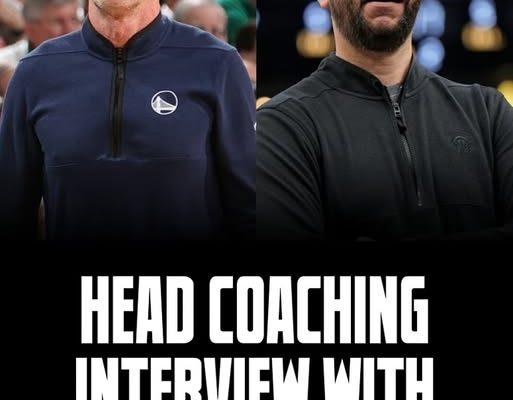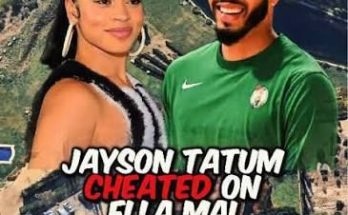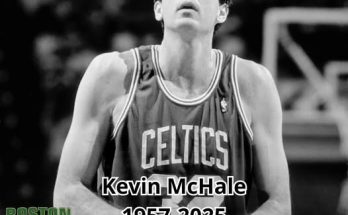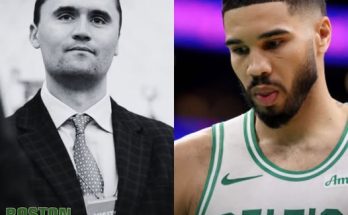The Cleveland Cavaliers have officially been granted permission to interview Kenny Atkinson and James Borrego as they begin their thorough and strategic search for the next head coach who will take the reins of a team brimming with potential yet looking for a clearer identity. After parting ways with J.B. Bickerstaff following another early playoff exit, the Cavaliers are exploring seasoned voices who can maximize the current core of Donovan Mitchell, Darius Garland, Evan Mobley, and Jarrett Allen. Atkinson and Borrego both bring different pedigrees and philosophies to the table, but each has earned a reputation for development, tactical awareness, and the kind of professionalism that could make them ideal candidates for a team eager to take the next step in the Eastern Conference hierarchy.
Kenny Atkinson, currently serving as an assistant coach for the Golden State Warriors, is best known for his time as head coach of the Brooklyn Nets from 2016 to 2020. He guided that franchise through a rebuild, building a competitive and spirited unit even without the benefit of high draft picks due to prior trades. Atkinson’s Brooklyn teams were recognized for their player development success stories — with players like Spencer Dinwiddie, Joe Harris, and Caris LeVert improving tremendously under his watch. In the 2018-2019 season, Atkinson led the Nets to a 42-40 record and a playoff berth, a significant milestone given the team’s circumstances at the time. His tenure ended somewhat abruptly once Brooklyn’s roster took a superstar turn with the arrivals of Kevin Durant and Kyrie Irving, reportedly due to philosophical differences. Yet, Atkinson’s reputation didn’t take a hit; he’s remained a high-level assistant for top-tier organizations, including the Los Angeles Clippers and now the Warriors, learning under championship-level minds and showing continued readiness for another shot at leading a team.
James Borrego, meanwhile, brings head coaching experience from his time with the Charlotte Hornets. A former assistant under Gregg Popovich in San Antonio, Borrego has earned a reputation for being analytical, composed, and deeply invested in the long-term growth of young players. His four-season tenure with the Hornets saw steady improvement in a franchise known for inconsistency. Though his record in Charlotte wasn’t overwhelming in wins and losses, his impact on the team’s development curve and culture was widely acknowledged. Players like LaMelo Ball, Miles Bridges, and P.J. Washington all blossomed under Borrego’s system. His offensive schemes emphasized movement, spacing, and freedom — a formula that aligns with some of Cleveland’s strengths but would also require adaptation to its frontcourt-heavy roster. Borrego’s dismissal in 2022 by Charlotte was met with some surprise, as many believed he was on the brink of making a postseason push with the Hornets. Since then, he’s served as a trusted assistant coach with the New Orleans Pelicans, continuing to refine his craft.
For the Cavaliers, the decision to explore interviews with both men speaks volumes about their priorities in this search. It isn’t simply about finding a coach with a big name or one who can implement a rigid win-now plan. Instead, Cleveland appears to be leaning toward leadership that can work within the balance of player development and winning expectations, especially as the organization attempts to convince Donovan Mitchell to stay beyond his current contract. Mitchell, the star guard acquired in 2022 from Utah, remains the centerpiece of Cleveland’s ambitions. His future could dictate how aggressive or cautious the front office decides to be, and hiring the right coach is a crucial part of ensuring both short-term competitiveness and long-term cohesion.
The Cavaliers’ decision to move on from Bickerstaff after a season that included 48 regular-season wins and a first-round playoff series win over Orlando was not an easy one. Bickerstaff was popular among players, and he helped shepherd the team out of the post-LeBron wilderness. Still, there were glaring issues in Cleveland’s offensive design and postseason adaptability. In the second round against the Boston Celtics, the Cavaliers looked overwhelmed and outmatched, even considering key injuries. That series was marked by stagnant offense, mismatches that weren’t corrected, and a lack of offensive improvisation once the initial sets were disrupted. The organization determined it had gone as far as it could under Bickerstaff’s guidance and needed a fresh voice to elevate the group.
That fresh voice could very well come from Atkinson or Borrego, both of whom have demonstrated that they can build trust in the locker room and develop an organizational philosophy that players buy into. Atkinson is often praised for his demanding yet nurturing style, one that pushes players hard but also gives them clear developmental pathways. His teams are typically disciplined, and he’s known for his offensive creativity — a trait that could benefit Cleveland’s backcourt-heavy roster. However, questions remain about how he would handle the personalities on a team that has higher expectations than his Brooklyn squads ever did. Atkinson’s most successful teams thrived as underdogs, not favorites. How he manages egos and star dynamics will be key if he earns the Cavaliers’ nod.
Borrego, in contrast, has worked with young talent while also coaching All-Star-level players, giving him a different sort of experience. His calm demeanor and belief in empowering players could mesh well with Mitchell and Garland, though there could be challenges in balancing that empowerment with the need for structure — especially on a team that has often seen inconsistent effort from night to night. Defensively, Borrego’s teams have sometimes struggled, and with Cleveland’s identity largely rooted in its ability to guard, that will be a point of discussion during his interview. The Cavaliers’ front office, led by President of Basketball Operations Koby Altman, will undoubtedly probe each candidate’s vision for how to maximize the team’s defensive DNA while improving offensive cohesion and flexibility.
Another major element of the coaching search will be how each candidate envisions the growth of Evan Mobley. The third-year forward is seen as a future franchise cornerstone. While Mobley has already established himself as an elite defender, questions about his offensive ceiling have continued to emerge. Both Atkinson and Borrego have solid track records when it comes to improving young players’ offensive versatility, but the fit will require thoughtfulness. Mobley needs a coach who will challenge him to expand his game without rushing his development or taking him out of his comfort zone defensively. His unique blend of skills offers Cleveland a potential two-way star, and whoever takes over the team must find a way to unlock his offensive impact without compromising the team’s core defensive identity.
There’s also the ongoing debate about the Garland-Mitchell backcourt pairing, and whether it’s tenable long-term. Both are elite offensive players in their own right, but there have been fit issues at times — particularly in late-game situations and against high-level defensive pressure. The new coach will have to navigate that pairing, either by implementing systems that better highlight their complementary skills or by making tough decisions about roles and ball-handling responsibilities. Atkinson, having coached guard-heavy rosters before, might have a more natural edge in this area, but Borrego’s system-oriented style also provides intrigue.



